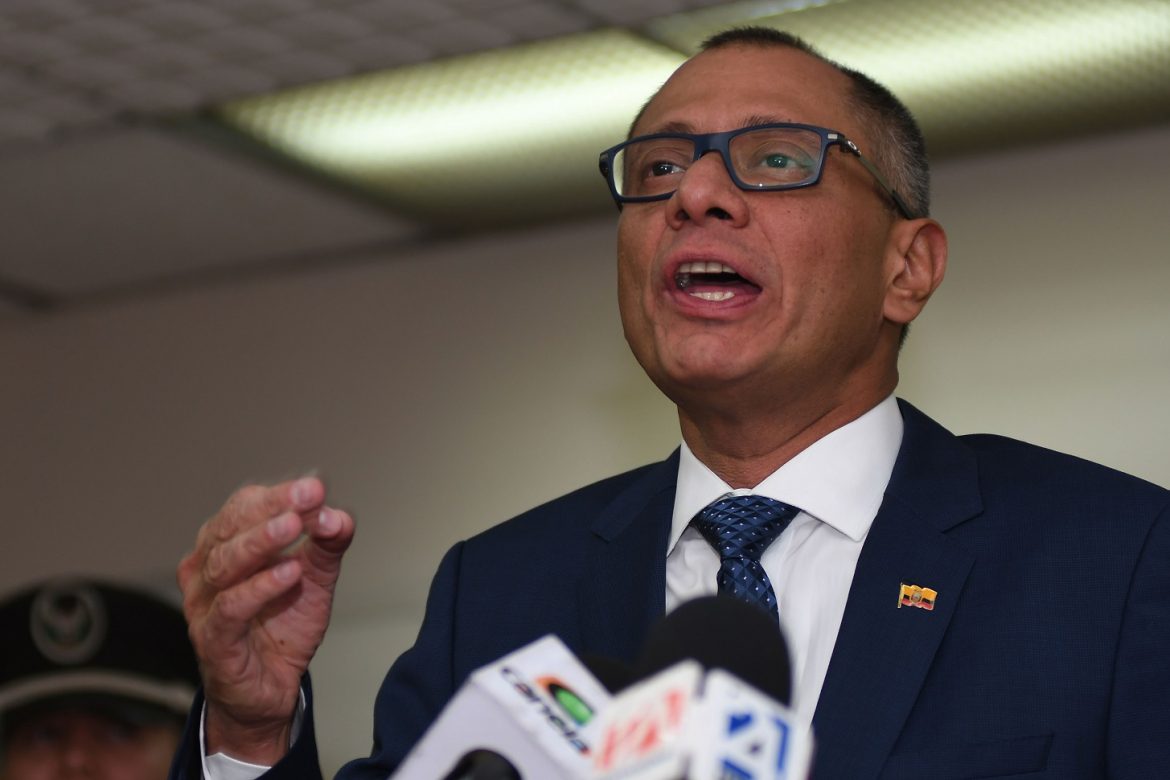This material belongs to: El Comercio.
On Friday, December 22, 2017, the Constitutional Court (CC) will notify the Assembly of the decision on the request for impeachment against Vice President Jorge Glas.
By a “legal formality,” the Court did not make the content of the document public on Thursday. But this newspaper knew that the project of Judge Manuel Viteri raised the admission of the process. And this was approved unanimously, with eight votes from the judges present.
The institution had six days of maximum time to reach this part of the process, but did so in the middle of the term.
After receiving the notification, the Legislative will have the free way to politically process the Second President. President José Serrano must send the file to the Examination Board.
That instance will begin its work by notifying Roberto Gómez (Creo), applicant; and Glas with the beginning of the trial. And it will give them five days to present their evidence orally or in writing.
After this time, the Commission will have five more days to make a report recommending the file of the process or the dismissal and / or censure of the official. The document must be analyzed by the Plenary of the National Assembly before a resolution is taken.
According to the times established in the law, it is unlikely that all the steps will be completed before January 2. That date, you can declare the abandonment of the position of the vice president.
The speed of the Court
The agility of the Constitutional Court to give way to some cases and not to process others at the same pace, has legal support.
The Law of Jurisdictional Guarantees (LGJ), which came into effect in 2009, eliminated the obligation that the CC had to substantiate the processes in the same order in which they were presented.
The constitutionalist Ismael Quintana warns that this change influenced so that each year there are more cases repressed in that instance.
That is why – he adds – in the agendas of the Plenary sessions, cases that entered the Court this year are included, but they are from 2009 and they are still pending.
An emblematic case was presented on November 25, 2015. Around 30 workers from private companies such as mobile telephony operators, cement companies, among others, demanded the unconstitutionality of Article 15 of the Labor Justice Law, which refers to the limit in the distribution of profits.
The regulations were promoted in the previous government. After two years, the case still does not have a draft resolution, so it is not yet on the agenda to be addressed in the Plenary of the Court.
According to the System of Management of Constitutional Actions, which is available on the website of the CC, in 2016, 2,643 cases were admitted for processing. And 586 rulings and judgments were issued. While until October 2017, there were 2 509 admissions and 434 resolutions.
The Law of Jurisdictional Guarantees establishes several terms to solve the causes. For example, in the case of unconstitutionality claims, it should not take more than six months, according to Quintana.
But, the Regulation of substantiation that was approved by the same entity in 2010 changed the application of those periods. These run only when the files are in the offices of the magistrates or in the hands of the Plenary of the Court. And they are suspended when jurisdictional support or the practice of some diligence is requested.
Judge Marien Segura and Tatiana Ordeñana were based on this regulation to act beyond the established deadline for the constitutional control of the popular referendum questionnaire and referendum.
But Moreno appealed to the principle of the hierarchy of the law and sent the decrees to summon the electoral process directly to the National Electoral Council (CNE).
In addition, the Chief Executive asked the Comptroller to analyze possible administrative sanctions against Judges Ordeñana and Segura.
The control body, in turn, asked the Plenary of the CC itself to study this situation. But in the letter sent by the comptroller Pablo Celi, he reminded himself that one of the sanctions is destitution.
Santiago Guarderas, professor of constitutional law and Christian Social leader, considers that the Constitutional Court has a negative balance in its actions, not only for the speed in the cases but for its political independence with the previous Government.
According to the registry of the Council of Citizen Participation and Social Control, the current Constitutional Court ends in 2021. And the partial renewal (of three judges) would be in 2018.


